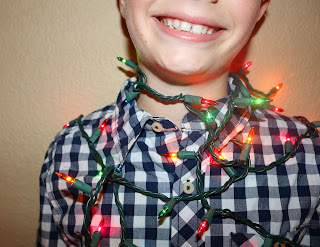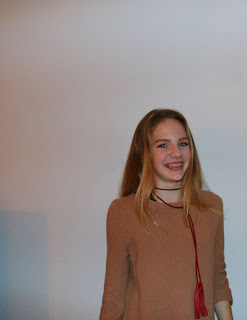1. The man, age 58, Kai Suk Han, was shoved aggressively into the path of a rapidly approaching subway by a panhandler on December 4th, around 12:30 pm. Photographer, R. Umar Ambassi, a freelance New York City photographer claimed he was 'unable to help Han himself,' so he started running and snapping pictures, hoping to warn the conductor with his camera flash.
2. The photographer says he took the pictures to warn the conductor of the subway with his flash, but what conductor stops a subway when they see a camera flash, this is New York City, there are millions of eager tourists who can't help but snap pictures.
3. I personally find it disgusting that the photographer would take the event as an opportunity for a camera opt, instead of making an effort to save his life. But, I do also think that the photographer was not the person who pushed the man onto the tracks, and he didn't intend to do any harm. An effort should have been made to help him, but time moves so quickly, and subways approach extremely fast, not giving him an adequate amount of time to act appropriately.
4. I think the photographer should have at least made an effort to attempt and pull the man up. From the looks of the photograph, he is relatively close to the man with the train still a few seconds away. If needed, he could have tried to grab his arms and pull him up. 5. I think it was important for the New York Post to run the photograph as their cover because it gives the public an opportunity to discuss what are morals are becoming as a country, and give us a way to evaluate and rethink the decisions we make, as well as even the safety precautions of the New York subway system.
6. Stopping bad things from happening is obviously much more important. Humans value human life, and acting in a way that shows no respect or sympathy for those who are about to lose everything is not a sacrifice we can make for a picture.
7. A photographer is a person before they are a photographer, and they have a duty as being a human, to help save lives, more than they have a duty to taking pictures.
8. I would understand the man's explanation better if he hadn't been so close to the man, with a clear second to help him, or if there were other people attempting to pull him out, and he captured the entire scene. But in this situation, he took the few seconds that could have saved that mans life for himself, and he used them for a picture. So, yes, in appropriate settings, it is acceptable for a photographer to involve themselves, if it's not a life or death situation.
9. How does “taking pictures” tell a conductor to stop a train? Huh? Is this photographer guy a moron? Throw down your camera and run to help the guy. If you fail, at least you tried. Taking pictures isn’t trying. What conductor would think, “Oh, look, someone’s taking pictures…maybe I should stop the train.” This is the response that targets the most crucial points of the event, and it shows the behavior of the photographer, and the ways he could have saved his life instead of capturing his death.
Thursday, December 15, 2016
Tuesday, December 13, 2016
Tuesday, December 6, 2016
Thursday, December 1, 2016
Deadlines
Deadlines:
1. the origin is unknown but the earliest recount was in the civil war, and it was used as a line prisoners weren't allowed to cross.
2. Missing a deadline is stressful and frustrating, setting you back and making you have to have more work in the future, because unfortunately just because you need more time doesn't mean anyone will give it to you.
3.Most of the time I'm on top of my work, even if it means coming home from dance at ten at night every night and starting homework then. I do this because I know I have to catch up later and it will just be more work for me then.
4. I usually don't miss deadlines.
5. I just have so much on my plate due to school, dance, and no time for anything. I know that's a stereotypical excuse, but school starts, I go straight to dance, because it starts at 5, eat dinner in the car, and get home at 10, starting homework then, every day Monday-Thursday. Friday-Sunday is reserved for competitions and solo rehearsal, so trying to fit things in can be hard to handle and requires a lot of self discipline.
6. When I'm trying to be productive, I put in my earbuds and play music, put my phone on do not disturb, keep a close eye on the time, and get to work doing everything in order and as efficiently as possible.
1. The tip that would be the most helpful would be to not be afraid of saying no to people. Sometimes I feel like I have 10,000 commitments every day, and not enough time to give my full attention to every event.
2. This would still probably the most difficult tip for me to follow because I never want to miss out on an opportunity to spend time with my friends, or take a really awesome dance opportunity that could further my career.
3. I struggle with waking up and getting out of bed in the morning, but once I'm up it's not an issue, but I wouldn't say I'm a night person either who can stay up until 3 am without being tired, so I would say I'm neither unless something came up where I needed to be.
3A. Usually right after school on my dance, I hit a lull where I just want to lay down and sleep, but by the time I start dancing, my energy picks up and I feel much better.
4. I usually have my dedicated study time from about 10-12 pm when I get home from dance.
5. The time period already eliminates most distractions because most people are asleep or getting ready for bed to go to school the next day.
1. Being able to manage time is extremely important relating to homework. If you get assigned a poster and powerpoint project assigned 2 weeks before the due date, but an English paper one day, a Biology experiment, or a huge Algebra test, it can be hard to push off homework that you have time for against homework due the next day, but if you map out your time it will make your life much easier in the future.
2. At my desk with a candle burning, some comfortable pjs on, and some quiet music playing.
3. I can never work in silence, so I usually have Netflix or Youtube on in the background, and if I'm not 100% focused t can be distracting.
4. Turn them off and try to learn to focus without them. Pick a background noise that doesn't involve so much attention of watching or hearing dialogue, such as music. Instead of doing the two things simultaneously, take breaks to watch or listen and then get back to work with 100% focus and no distractions.
1. the origin is unknown but the earliest recount was in the civil war, and it was used as a line prisoners weren't allowed to cross.
2. Missing a deadline is stressful and frustrating, setting you back and making you have to have more work in the future, because unfortunately just because you need more time doesn't mean anyone will give it to you.
3.Most of the time I'm on top of my work, even if it means coming home from dance at ten at night every night and starting homework then. I do this because I know I have to catch up later and it will just be more work for me then.
4. I usually don't miss deadlines.
5. I just have so much on my plate due to school, dance, and no time for anything. I know that's a stereotypical excuse, but school starts, I go straight to dance, because it starts at 5, eat dinner in the car, and get home at 10, starting homework then, every day Monday-Thursday. Friday-Sunday is reserved for competitions and solo rehearsal, so trying to fit things in can be hard to handle and requires a lot of self discipline.
6. When I'm trying to be productive, I put in my earbuds and play music, put my phone on do not disturb, keep a close eye on the time, and get to work doing everything in order and as efficiently as possible.
1. The tip that would be the most helpful would be to not be afraid of saying no to people. Sometimes I feel like I have 10,000 commitments every day, and not enough time to give my full attention to every event.
2. This would still probably the most difficult tip for me to follow because I never want to miss out on an opportunity to spend time with my friends, or take a really awesome dance opportunity that could further my career.
3. I struggle with waking up and getting out of bed in the morning, but once I'm up it's not an issue, but I wouldn't say I'm a night person either who can stay up until 3 am without being tired, so I would say I'm neither unless something came up where I needed to be.
3A. Usually right after school on my dance, I hit a lull where I just want to lay down and sleep, but by the time I start dancing, my energy picks up and I feel much better.
4. I usually have my dedicated study time from about 10-12 pm when I get home from dance.
5. The time period already eliminates most distractions because most people are asleep or getting ready for bed to go to school the next day.
1. Being able to manage time is extremely important relating to homework. If you get assigned a poster and powerpoint project assigned 2 weeks before the due date, but an English paper one day, a Biology experiment, or a huge Algebra test, it can be hard to push off homework that you have time for against homework due the next day, but if you map out your time it will make your life much easier in the future.
2. At my desk with a candle burning, some comfortable pjs on, and some quiet music playing.
3. I can never work in silence, so I usually have Netflix or Youtube on in the background, and if I'm not 100% focused t can be distracting.
4. Turn them off and try to learn to focus without them. Pick a background noise that doesn't involve so much attention of watching or hearing dialogue, such as music. Instead of doing the two things simultaneously, take breaks to watch or listen and then get back to work with 100% focus and no distractions.
Subscribe to:
Posts (Atom)





